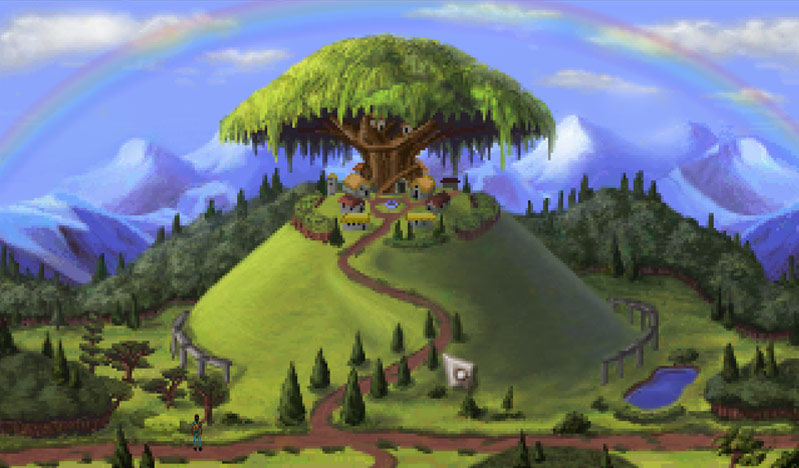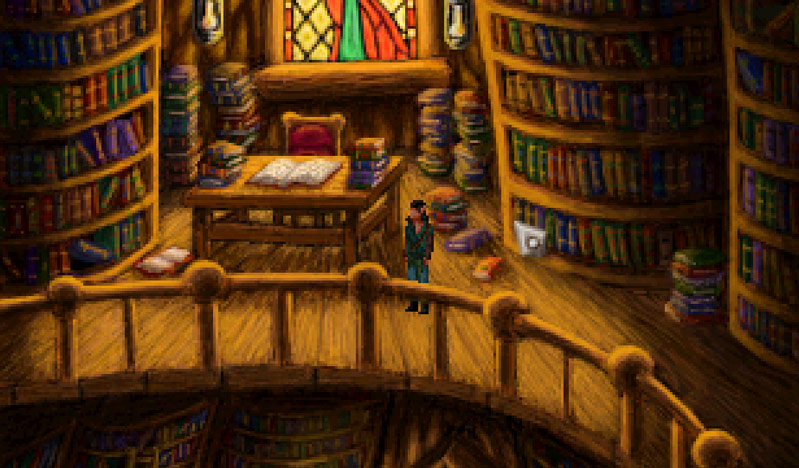Search
[{{{type}}}] {{{reason}}}
{{/data.error.root_cause}}{{{_source.title}}} {{#_source.showPrice}} {{{_source.displayPrice}}} {{/_source.showPrice}}
{{#_source.showLink}} {{/_source.showLink}} {{#_source.showDate}}{{{_source.displayDate}}}
{{/_source.showDate}}{{{_source.description}}}
{{#_source.additionalInfo}}{{#_source.additionalFields}} {{#title}} {{{label}}}: {{{title}}} {{/title}} {{/_source.additionalFields}}
{{/_source.additionalInfo}}The Order of the Thorne: The King's Challenge (PC)

The Order of the Thorne: The King's Challenge
Developed By: Infamous Quests
Published by: Infamous Quests
Released: January 26, 2016
Available On: Windows
Genre: Point-and-click adventure
Number of Players: 1
ESRB Rating: Not rated
Price: $9.99
(Humble Store Link)
Thank you Infamous Quests for sending us this game to review!
PC gamers in the 1990s may remember the old point-and-click adventure genre; from King’s Quest to Monkey Island, The Dig to Day of the Tentacle, these games offered a wonderful mix of exploration and puzzle solving that has never quite been replicated. Though the heyday of adventure games may have passed, there are still some new gems to be found in the modern era. For those wishing to relive an older age or introduce themselves to the genre, The Order of the Thorne: The King’s Challenge will certainly suffice.
The Order of the Thorne: The King’s Challenge follows Finn the bard as he journeys in search for musical inspiration. To that end, he enters the Faerie Kingdom to participate in the King’s Challenge – a game of wits and wills devised by the Faerie King and Queen every ten years. This year, the queen has hidden herself somewhere within the kingdom; the first to find her will be crowned the victor. Though the winner of the Challenge is granted one request of the Faerie Court, Finn seeks only to compose the greatest ballad ever written – and live up to the legend of his father, a member of the ancient and mysterious Order of the Thorne.
The King’s Challenge plays like a traditional point-and-click adventure game: you explore the world around you, finding and completing puzzles along the way to your final goal. The left mouse button moves Finn and interacts with people and objects; right-clicking examines whatever you’re pointing at. Though older games of the genre typically had a list of ways to interact with the environment – look at, talk to, push, pick up, etc. – The King’s Challenge streamlines the process by limiting you to a single interaction that changes depending on the target. The game doesn’t suffer from this lack of options, however, and Finn will always perform a suitable action where appropriate.
Finn moves at a brisk pace, and right-clicking skips all travel outside of the usually-snappy screen transitions. The game world isn’t the biggest, but it’s varied in layout and appearance. The map fits together logically, and once you get your bearings, it’s easy to traverse to get to where you need to go. Much of your time will be spent in dialogue with other characters, each one having a wide array of conversation topics to choose from. Only a few are ever relevant to a puzzle, but it serves to add depth to the realm of Uir, where the game takes place. Dialogue can be skipped at any time, so there’s little time lost if you misclick or are simply impatient. In addition, a voiced narrator will describe objects and actions; these, unlike character dialogue, require a click to advance, which can be a little jarring at first.

Strong Points: Expertly captures the King’s Quest feel; great music; not too hard or too easy
Weak Points: Short; little replay value
Moral Warnings: Brief, non-fatal violence; generic faerie magic
Finn will obtain a number of items, stored in an inventory that pops out when you move your cursor to the top of the screen. While there’s a disappointing lack of reaction when you offer other characters items they don’t need, using them on Finn usually provokes some unique response. In addition, as a bard, Finn carries a lute and can play songs; these are primarily used to solve puzzles or to draw more world-building reactions out of the NPCs. The lute has an optional gameplay element that amounts to a game of musical Simon: the lute menu has four strings with four segments a piece, and clicking on the desired song prompts you to play a series of notes by clicking the strings. Additionally, you can turn the game off and have Finn play the song himself with no player input, and using this “easy” mode has no negative implications.
The biggest issue in the game proper is in its premise: while there’s nothing wrong with the story or the setting, the game can’t seem to decide whether it wants to be leisurely or urgent. Finn is pitted against six other contestants, all of which are purported to be fierce competition, and the game will sometimes remind you that you can’t waste time. However, all six of your opponents are varying degrees of incompetent, and in the few times you see each of them, they are getting sidetracked, confused, or making aggressively poor decisions. There is a single instance of a competitor appearing in the world proper looking for the queen, and if there were more of this, it would go a long way to pushing the player along. As it stands, though, the game moves with little urgency, despite prompts to the contrary.
Other than that, there is little fault to find in the game’s mechanics. Subtle hints will push the player along if they appear stuck, and the game never becomes unwinnable. In the worst case scenario, the old “use every object on every person” trick will work with no downsides. Puzzles make sense and require no leaps of logic, but are not mindlessly easy. The addition of the lute adds a lot to the game’s open-endedness. There are many objects to examine, each with their own unique narrative blurb – almost too many, as the narrator has something to say for every useless pile of rocks on every screen. Superfluous narration is a bit of a problem – entering the tavern or the monastery in the main city of Crann Naoimh prompts the narrator to declare that you’re entering the building every single time, which is not only pointless but breaks the flow of the game. However, most of the game proceeds at a good pace, with little to bar your path outside of what was intended.
The game’s presentation seeks to capture the old King’s Quest feel, and does so perfectly. The graphics are practically straight out of King’s Quest V, and is especially appreciated with the current indie game trend of nondescript 8-bit styles. Most characters have high-quality portraits to accompany their dialogue, with each one animated to a slight degree. There are a few instances where the game zooms in on Finn and another character, giving this portrait-level quality to the whole screen, and are always a treat to see. There are a handful of more overt nods to the King’s Quest series hidden throughout the game as well. The whole game is a brightly-colored, well-defined throwback to an earlier time, and is all the better for it.

Higher is better
(10/10 is perfect)
Game Score - 90%
Gameplay - 17/20
Graphics - 10/10
Sound - 8/10
Stability - 5/5
Controls - 5/5
Morality Score - 93%
Violence - 8/10
Language - 10/10
Sexual Content - 10/10
Occult/Supernatural - 8.5/10
Cultural/Moral/Ethical - 10/10
The music, fitting for a game about a bard, is of high quality throughout, with many varying themes depending on location and nearby characters. Finn’s lute songs are all distinct and pleasing on the ears. Every character is fully voiced, and the voice actors do a good job of portraying each one. The weakest voice, oddly enough, might be Finn’s due to some odd intonation, but it is by no means bad. There are a few audio errors, mostly limited to some lines cutting out too early or a mishap in editing together separate lines into one text box. These problems are few and far between, however, and as a whole the game is a pleasure to hear.
Unfortunately, despite all of its presentation, the game is very short, probably lasting no more than five hours. Being a static puzzle game also means that there’s very little replayability. The ending heavily hints at a sequel, and one can gather than The King’s Challenge is the first in a planned Order of the Thorne series, but for now it’s just a single short game, though certainly an enjoyable one.
Morally, there are barely any problems to talk about. Finn can get attacked and knocked out by wild animals in one section of the game, but there’s no lasting damage and no real fight scenes anywhere. There’s mention of some generic faerie magic, and you see it used a few times throughout the game. As with any fantasy bard worth his salt, Finn’s music is essentially magical in the way it can enact change, though it’s all of the non-violent variety. The game is generally clean, classy, and mostly friendly throughout.
In the end, The Order of the Thorne: The King’s Challenge hearkens back to a time when video games were slower paced and more thoughtful. Those looking to explore a good-looking landscape, play a competent puzzle game, or simply sate their nostalgia will find what they’re looking for here. Some might find the $9.99 price tag might be a little high for such a short game with such little replay value; for fans of the genre, however, the game is practically a must-buy at any price.
-Cadogan






